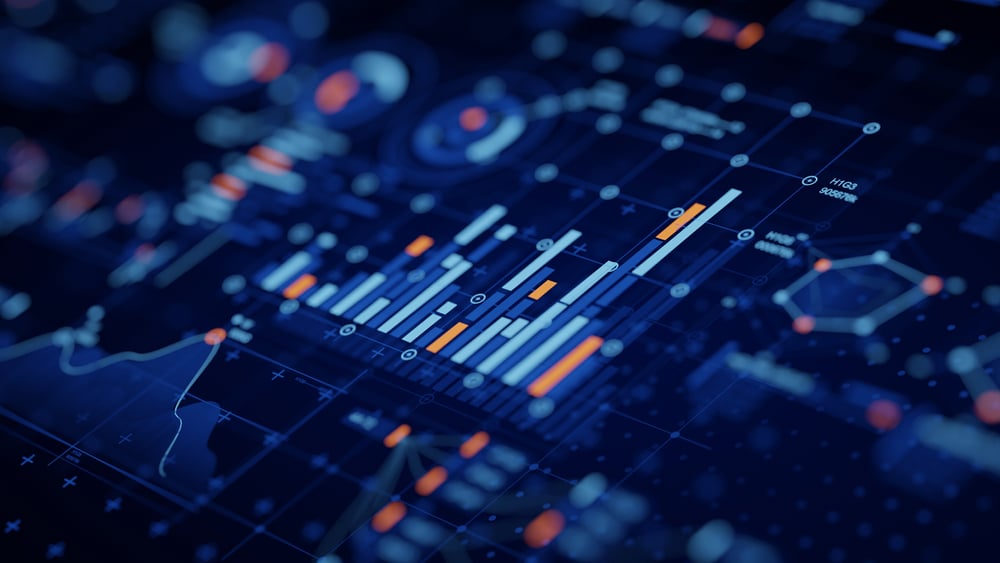Bid Data in Retail Marketing Analytics
In today's digital age, data is everywhere, and it's growing at an unprecedented rate. As more and more consumers turn to online shopping, retailers are using big data to gain a better understanding of their customers and create more personalised shopping experiences. This transformation has been revolutionary, and it's changing the way retailers approach marketing analytics.
Gone are the days of manually collecting customer data and analysing it in spreadsheets. Now, retailers can collect and process massive amounts of data in real-time using powerful analytics tools - the likes of Qlik data analytics tools. This allows them to make data-driven decisions that can help increase sales and improve customer satisfaction.

Why Big Data In Retail Marketing Analytics Is So Powerful
There's no doubt that big data can be used to enhance the customer experience. By leveraging big data, retailers are able to increase customer satisfaction and lifetime value while also better understanding the wants and needs of their customers.
Big data provides a wealth of information that can help retailers understand their customers better than ever before. For example, big data might tell you that a certain demographic prefers one type of product over another or has specific preferences when it comes to packaging or shipping options--information that was previously difficult to obtain without conducting surveys or focus groups (which are expensive).

But Effective Data Management & Analytics Are Key to Harness Big Data
Before retailers can benefit from the changes of big data they need to know what data they have, what data they don't have, and how much of it is relevant. They also need to know what kind of data they want to collect in the future--and whether or not they're willing to share that information with others.
This is where retail data analytics & effective data management are crucial for retailers to fully utilise the big data they collect. Not only is It important for retailers to do this but it is crucial they can do it strategically to discover how big data can benefit their operational performance.
For example: if a retailer has been collecting customer loyalty program information since 2012 but hasn't been able to use it effectively until now because its systems weren't capable enough, then maybe now would be the right time for them start thinking about deploying data science tools & data integration to those systems, so that next year (or whenever) when another wave comes along, they are able to cope with changing levels of customer data.

How Machine Learning Can Assist The Changes In Big Data & Retail Marketing Analytics
Machine learning has massive scope for big data in retail marketing analytics if used correctly.
Machine learning is a type of artificial intelligence (AI) that allows computers to learn without being explicitly programmed. It's used in many industries, but it's especially helpful for retailers because it can help them understand their customers better.
Machine learning allows businesses to analyse large amounts of data to identify patterns and make predictions about the future. This is especially useful for retailers because they have so much customer information at their disposal--they know what people are buying, when they're buying it, where they're buying it from, etc.--and machine learning allows them to use this information strategically by identifying new ways to target customers or improve the customer experience based on what we know about them already (like whether someone tends not buy as much during certain seasons).
Big Data Is Changing Retail Marketing Analytics In Important Ways
Big data is changing the way retailers market themselves in many important ways. Big data can help retailers understand their customers better, which will lead to a better customer experience and increased revenue streams.
For example, retailers can use big data to determine what products customers want and when they want them by analysing their purchasing history. This allows retailers to offer relevant promotions at the right time and place--such as when a customer enters a store or browses an e-commerce site--and ultimately increase sales conversions (i.e., the percentage of shoppers who make purchases).
Big data is an invaluable resource for retail marketers, but it's important to remember that it's not a panacea. It can be used in many different ways and can help retailers improve their customer experience, generate revenue streams that weren't possible before big data became available and reduce churn rates--but only if they know how to use it properly!


